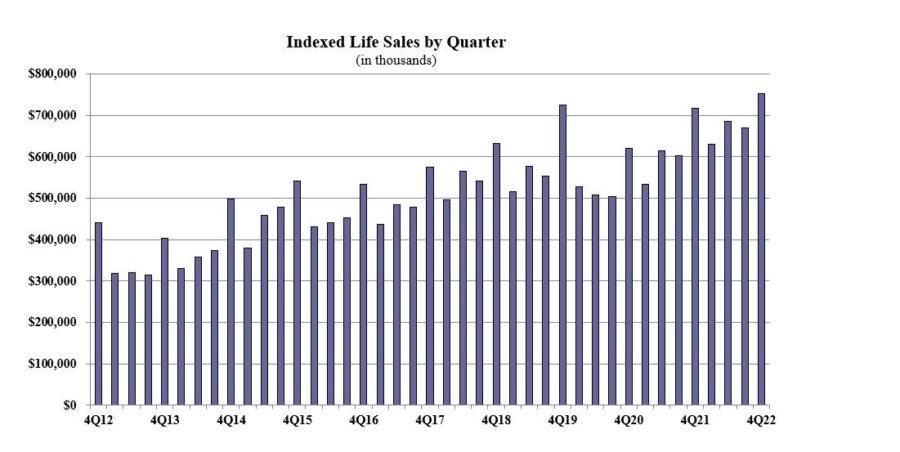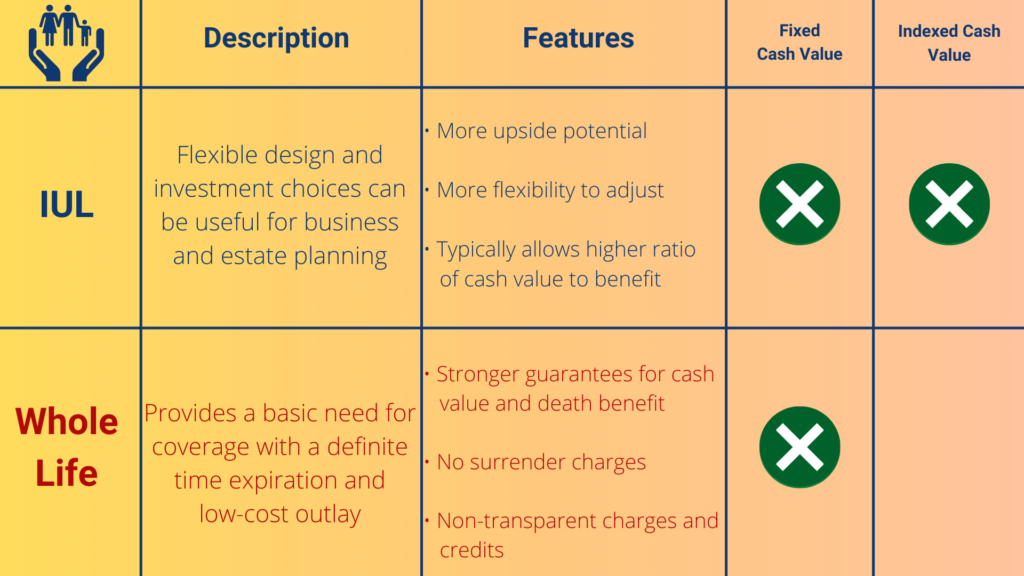All Categories
Featured
Table of Contents
1), usually in an effort to beat their classification standards. This is a straw male debate, and one IUL folks love to make. Do they contrast the IUL to something like the Vanguard Overall Stock Exchange Fund Admiral Show to no lots, a cost ratio (EMERGENCY ROOM) of 5 basis points, a turnover proportion of 4.3%, and an outstanding tax-efficient document of distributions? No, they contrast it to some awful actively taken care of fund with an 8% lots, a 2% ER, an 80% turnover proportion, and a dreadful record of short-term capital gain circulations.
Shared funds often make annual taxable circulations to fund proprietors, also when the worth of their fund has actually gone down in worth. Common funds not just need revenue reporting (and the resulting annual taxation) when the common fund is increasing in worth, however can likewise enforce revenue tax obligations in a year when the fund has actually decreased in value.
You can tax-manage the fund, harvesting losses and gains in order to minimize taxed circulations to the financiers, but that isn't somehow going to change the reported return of the fund. The possession of common funds may call for the common fund owner to pay projected tax obligations (best guaranteed universal life insurance).

IULs are simple to position so that, at the owner's fatality, the beneficiary is not subject to either income or inheritance tax. The same tax obligation decrease methods do not function virtually as well with common funds. There are countless, often pricey, tax traps connected with the moment buying and marketing of shared fund shares, catches that do not use to indexed life Insurance coverage.
Possibilities aren't really high that you're mosting likely to be subject to the AMT due to your common fund circulations if you aren't without them. The rest of this one is half-truths at ideal. While it is true that there is no income tax obligation due to your beneficiaries when they acquire the profits of your IUL policy, it is likewise true that there is no earnings tax due to your successors when they inherit a mutual fund in a taxable account from you.
Variable Universal Life Vs Indexed Universal Life
There are far better methods to stay clear of estate tax problems than acquiring financial investments with low returns. Mutual funds might create earnings taxes of Social Safety benefits.

The growth within the IUL is tax-deferred and may be taken as tax complimentary earnings by means of fundings. The plan proprietor (vs. the common fund manager) is in control of his or her reportable income, thus allowing them to lower and even eliminate the taxation of their Social Security advantages. This is fantastic.
Below's an additional very little concern. It's real if you purchase a shared fund for say $10 per share right before the circulation date, and it disperses a $0.50 distribution, you are after that going to owe tax obligations (most likely 7-10 cents per share) although that you haven't yet had any kind of gains.
In the end, it's actually concerning the after-tax return, not exactly how much you pay in taxes. You're also most likely going to have more cash after paying those taxes. The record-keeping requirements for owning common funds are dramatically much more intricate.
With an IUL, one's records are maintained by the insurer, duplicates of yearly declarations are sent by mail to the owner, and distributions (if any type of) are completed and reported at year end. This set is likewise kind of silly. Of program you must maintain your tax obligation documents in case of an audit.
No Lapse Universal Life Insurance
Hardly a factor to purchase life insurance policy. Mutual funds are generally part of a decedent's probated estate.
Additionally, they undergo the delays and costs of probate. The proceeds of the IUL plan, on the other hand, is always a non-probate circulation that passes beyond probate directly to one's called recipients, and is for that reason exempt to one's posthumous lenders, undesirable public disclosure, or similar hold-ups and costs.
Medicaid incompetency and life time revenue. An IUL can provide their proprietors with a stream of income for their whole lifetime, regardless of exactly how lengthy they live.

This is beneficial when organizing one's affairs, and transforming assets to earnings before a retirement home arrest. Mutual funds can not be converted in a similar way, and are generally taken into consideration countable Medicaid properties. This is one more dumb one promoting that bad people (you recognize, the ones that need Medicaid, a federal government program for the bad, to pay for their assisted living facility) ought to make use of IUL as opposed to mutual funds.
Best Equity Indexed Universal Life Insurance
And life insurance policy looks awful when compared fairly against a pension. Second, people who have cash to get IUL above and past their pension are mosting likely to need to be dreadful at managing money in order to ever before get approved for Medicaid to spend for their retirement home expenses.
Persistent and incurable health problem motorcyclist. All policies will certainly permit a proprietor's simple access to cash money from their policy, commonly waiving any type of abandonment penalties when such people experience a serious health problem, need at-home care, or come to be constrained to a nursing home. Shared funds do not provide a similar waiver when contingent deferred sales fees still use to a mutual fund account whose proprietor requires to market some shares to fund the costs of such a stay.
Universal Life Insurance Quote Calculator
You obtain to pay even more for that benefit (biker) with an insurance coverage policy. Indexed universal life insurance policy offers fatality benefits to the recipients of the IUL owners, and neither the owner nor the recipient can ever shed money due to a down market.
Currently, ask yourself, do you actually need or want a survivor benefit? I certainly don't require one after I reach monetary freedom. Do I desire one? I intend if it were economical sufficient. Certainly, it isn't economical. On average, a purchaser of life insurance pays for truth expense of the life insurance coverage benefit, plus the expenses of the plan, plus the earnings of the insurance policy company.
Pros And Cons Of Indexed Universal Life Insurance
I'm not totally certain why Mr. Morais tossed in the entire "you can not lose cash" again right here as it was covered quite well in # 1. He simply intended to repeat the very best marketing factor for these things I mean. Once more, you don't shed nominal dollars, yet you can lose genuine dollars, along with face major opportunity cost as a result of reduced returns.

An indexed universal life insurance coverage policy proprietor might exchange their plan for an entirely various policy without setting off revenue tax obligations. A mutual fund owner can stagnate funds from one shared fund firm to another without offering his shares at the former (thus causing a taxable occasion), and repurchasing new shares at the latter, commonly subject to sales costs at both.
While it is true that you can trade one insurance policy for an additional, the factor that people do this is that the first one is such a terrible plan that even after getting a new one and going with the early, unfavorable return years, you'll still come out in advance. If they were sold the appropriate policy the very first time, they should not have any kind of wish to ever trade it and experience the very early, adverse return years once again.
Latest Posts
Indexed Universal Life Insurance Quotes
Fidelity Iul
Term Insurance Vs Universal Life